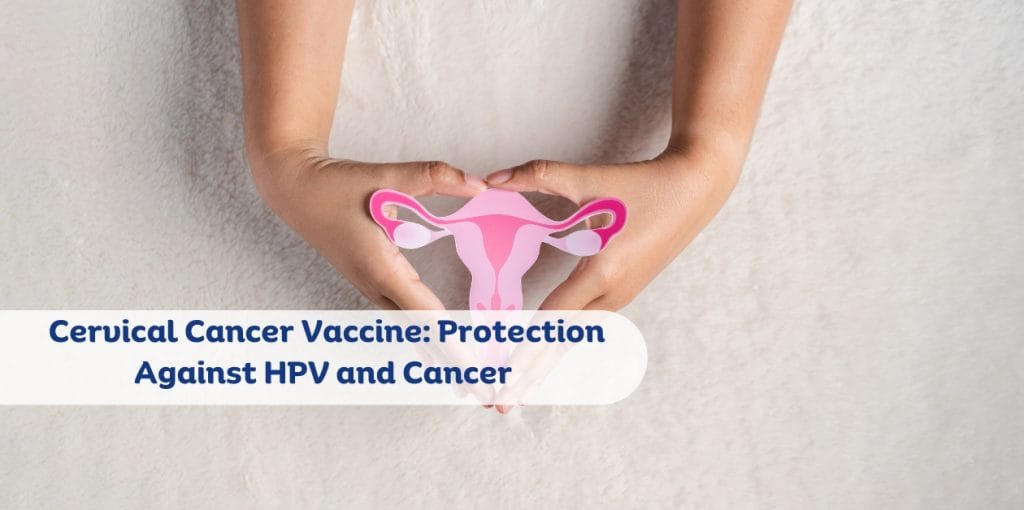Cervical Cancer Vaccine: Protection Against HPV and Cancer

Cervical cancer is a significant health concern for women worldwide, with the majority of cases being linked to Human Papillomavirus (HPV), a common viral infection. The introduction of the cervical cancer vaccine, also known as the HPV vaccine, has revolutionized the prevention and control of this deadly disease. This blog will explore the importance of the cervical cancer vaccine in preventing HPV infections, its role in cervical cancer prevention, and the groundbreaking work being done at Pi Health Cancer Hospital to advance research in this area.
What is Cervical Cancer?
Cervical cancer occurs when abnormal cells in the cervix (the lower part of the uterus) grow uncontrollably. These cells can spread to other parts of the body, leading to life-threatening complications. The primary cause of cervical cancer is persistent HPV infection, which is spread through sexual contact. While most HPV infections clear up on their own, some can cause changes in the cervix that lead to cancer.
Fortunately, cervical cancer is one of the most preventable cancers due to the availability of vaccines that protect against the types of HPV responsible for most cases.
The Importance of the Cervical Cancer Vaccine (HPV Vaccine)
The HPV vaccine is a highly effective tool in preventing cervical cancer. By protecting against the types of HPV that are most commonly associated with cervical cancer, the vaccine plays a crucial role in cervical cancer prevention. Here’s how it works:
- Protection Against HPV Types:
The HPV vaccine protects against the most common high-risk HPV strains (specifically HPV 16 and 18), which are responsible for approximately 70% of cervical cancer cases. The vaccine also provides protection against other HPV types that can cause genital warts and other cancers. - Early Prevention:
Vaccination is recommended for both girls and boys at the age of 11 to 12 years, though it can be administered to individuals up to the age of 26 (or beyond in certain cases). Vaccination before exposure to the virus provides the best protection, as the vaccine works by stimulating the immune system to produce antibodies against the HPV virus, preventing future infections. - Reduced Risk of Cancer:
By preventing the initial HPV infection, the cervical cancer vaccine can significantly reduce the risk of developing cervical cancer, as well as other HPV-related cancers, including anal, vulvar, and oropharyngeal cancers.
The Role of HPV in Cervical Cancer
HPV is a group of more than 200 related viruses, of which about 40 strains affect the genital area. While most HPV infections are harmless and do not cause cancer, persistent infection with certain high-risk strains can lead to abnormal changes in the cells of the cervix, known as cervical dysplasia. Over time, these changes can progress to cancer.
HPV vaccination is a critical component in preventing these changes from occurring. By targeting the most dangerous strains of the virus, the vaccine prevents persistent infections and reduces the overall burden of cervical cancer.
Conclusion
The HPV vaccine represents a major advancement in the fight against cervical cancer. It offers effective prevention against the most dangerous HPV strains, significantly reducing the risk of cancer. With the groundbreaking clinical trials conducted at Pi Health Cancer Hospital, including the work of Dr. Venugopal Arroju and Dr. Pragathi Erram, the future of cervical cancer prevention looks bright. By staying informed and taking advantage of HPV vaccination, individuals can protect themselves against one of the most preventable cancers.
To learn more about the cervical cancer vaccine, HPV prevention, and how Pi Health Cancer Hospital is advancing cancer research, contact us today. Your health is our priority.
FAQS
The cervical cancer vaccine, also known as the HPV vaccine, protects against the most common strains of Human Papillomavirus (HPV) that cause cervical cancer and other related cancers.
The HPV vaccine is typically recommended for both girls and boys between the ages of 11 to 12 years. However, it can also be given to individuals up to 26 years of age, or in some cases, even older.
The HPV vaccine is highly effective, providing protection against the strains of HPV responsible for about 70% of cervical cancer cases. Early vaccination provides the best protection, but it can still offer benefits if given later.
While the vaccine protects against the most high-risk HPV strains (16 and 18), it does not provide protection against all types of HPV. However, it significantly reduces the risk of cervical cancer and other HPV-related cancers.

Dr. A. Venugopal
Clinical Director & HOD Medical Oncology Senior Consultant Medical Oncologist & Hemato-Oncologist
About Author
Dr. A. Venugopal
MD (General Medicine), DM (Medical Oncology), MRCP – SCE Medical Oncology (UK), ECMO (Switzerland).
Dr A. Venugopal is One of the best medical oncologist and Hemato Oncologist in hyderabad, currently serving as the Head of the Department and Senior Medical Oncologist, Hemato Oncologist at Pi Health Cancer Hospital in Gachibowli, Hyderabad. He brings over 15 years of extensive experience in the field of Oncology.
